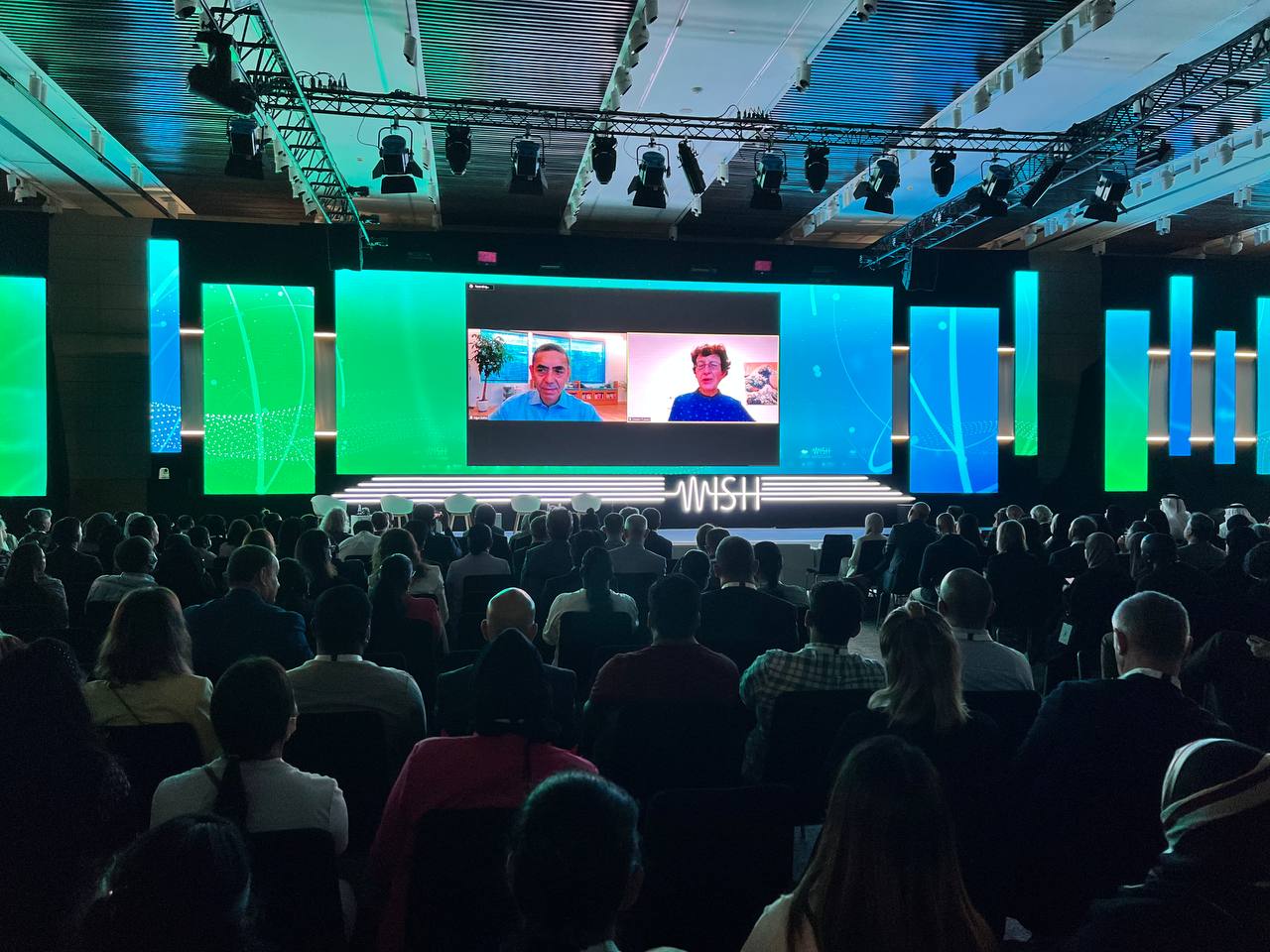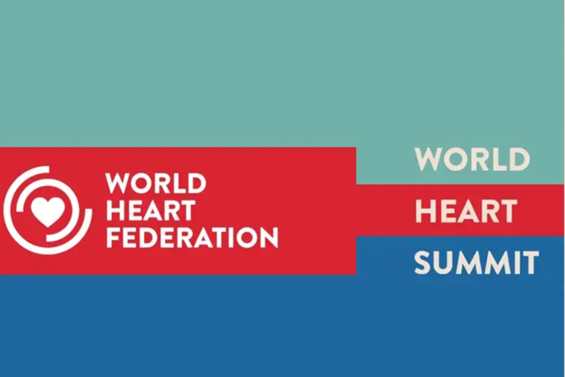BioNTech Founders Share Plans to Address Vaccine Inequity and Low Vaccination Rates at QF’s WISH 2022

Pair recount journey of developing a COVID-19 vaccine and reflect on importance of partnerships
Doha, Qatar, 05 October, 2022 – Developing the Pfizer-BioNTech vaccine, strategies to address vaccine inequity, the challenges of technology transfer, and the progress on vaccines for other diseases were some of the topics discussed in a plenary session at World Innovation Summit for Health (WISH) 2022 today. The session featured Prof. Özlem Türeci, M.D. and Prof. Ugur Sahin, husband and wife co-founders of German startup company BioNTech.
Moderated by BBC journalist Stephen Sackur, the discussion started with Prof. Sahin recounting some of their earliest reactions to news of the virus spreading around the world. “We realized early on that the outbreak in Wuhan would become a global threat and a global pandemic,” he said.
According to Dr. Sahin, there were two main factors behind their success in developing the first mRNA vaccine to treat COVID-19: “One was that we had new technology, the mRNA, that allows us to make a vaccine extremely quickly. The second aspect was that we knew that our technology can induce extremely strong immune responses, and that is what you need in a pandemic outbreak situation – a technology that can allow you to come up with a vaccine while the pandemic is ongoing.”
The speakers shared how all the stakeholders involved in vaccine development came together and went beyond their standard practices to roll out the vaccine as quickly as possible, including preparing for the second and third phases of trials while awaiting results from the first.
Prof. Türeci said: “A reason why we could be fast was that all stakeholders had the same joint sense of urgency. For example, regulators reacted promptly, and we had rolling submissions which they worked on even before having the full data sets, and these aspects came together and allowed us to be the first, whilst not cutting any corners.”
However, Prof. Türeci shared that this sense of urgency in developing vaccines cannot be the new normal as COVID-19 presented an extraordinary situation, where everyone went to extreme lengths, and which might not be possible to replicate in normal conditions.
Prof. Sahin also touched on the safety features of the mRNA vaccine and discussed how their technology works, saying: “A great aspect of mRNA is that after it fulfills its function, it is completely degraded so that it disappears from the cells, and this gave us confidence in a technology that we can use to instruct our immune system.”
He also touched on how, as with any introduction of new technology, they faced hesitation in the beginning and credited the scientific community and digital media for helping educate people about the safety of their vaccine and increasing acceptability in populations worldwide.
Prof. Sahin noted that the demand for the vaccine exceeded the output expected from the initial manufacturing plans and that they had to quickly adapt, along with Pfizer, to scale up production.
“We realize that the vaccine, particularly in the first six months of COVID-19, was of course not available in a way that everyone could get access, because the demand for vaccine doses in the western world, in the United States and in Europe, was much higher than we could deliver.”
Pressing on the issue of vaccine equity, the BioNTech founders shared that when they saw the inequality in vaccine distribution and availability in the developing world, especially countries in Africa, they felt obliged to address this with the same resolve they had for the development of a vaccine in the first place.
Their plan to do this is by enabling people across the world to develop their own vaccines through knowledge and technology transfer, and their concept of “BioNtainers”, which are containers that can be shipped anywhere and can help with developing vaccines not only for COVID-19 but other diseases as well. With the help of the World Health Organization, they have identified three potential sites in Africa, and the BioNtainers will be operating there soon.
Towards the closing, the pair discussed the challenges of technology transfer and stressed the importance of collaboration and commitment to ensure that the benefits of these technologies are translated and accessible to everyone. Looking to the future, Prof. Sahin and Prof. Türeci hope to develop effective treatment solutions for malaria, tuberculosis, HIV, and other deadly diseases, and ensure their availability to people worldwide.
More News

WISH Brings Global Leaders Together at Osaka Expo to Tackle Attacks on Health in Armed Conflict
Read More

